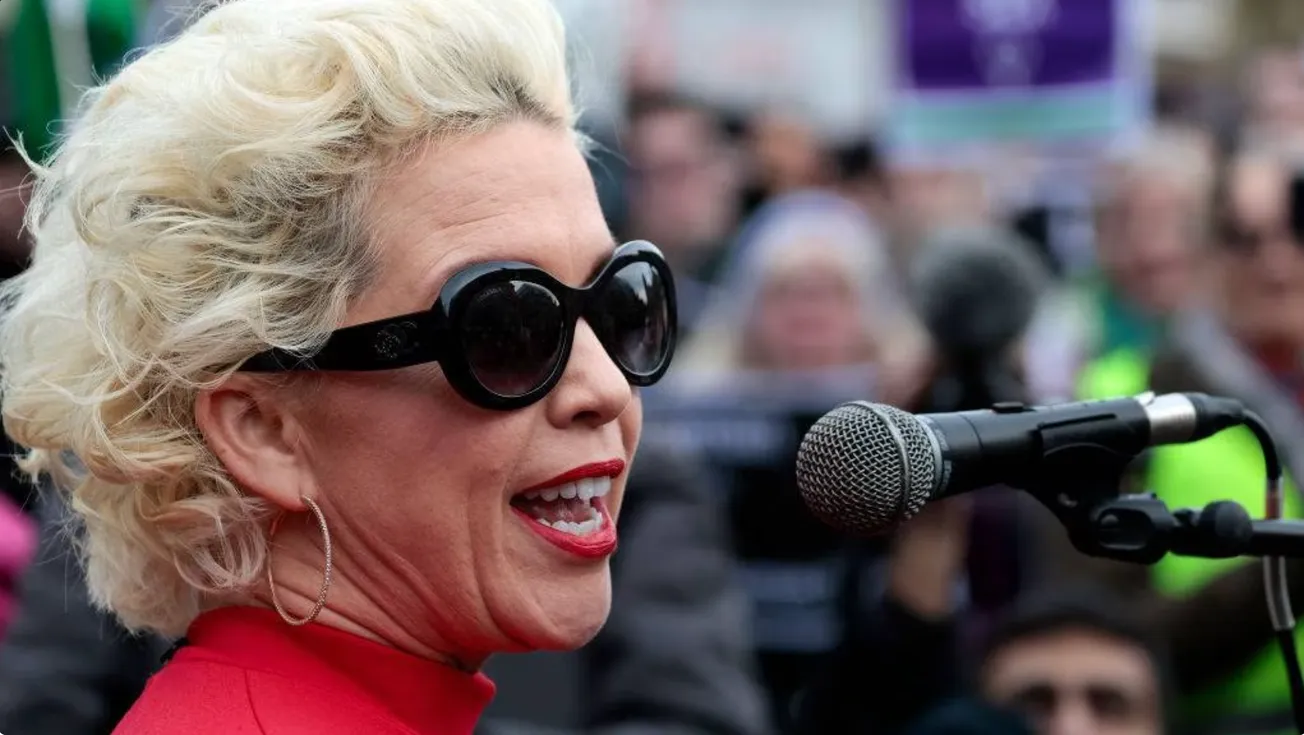Table of Contents
Cranmer
Lawyer with over 25 years’ experience in some of the world’s biggest law firms. I divide my time between the UK and NZ. This Substack explores issues facing NZ at present under my nom du plume, Cranmer.
Kellie-Jay Keen is yet to land in the country but we have already seen days of alarmist press coverage and increasingly frenzied social media jousting. So heated is the debate, that those on either side of the argument cannot even agree on how to describe Keen. To the left, she is a ‘controversial anti-trans activist’, whereas Keen describes herself as a women’s rights advocate. From there the debate only becomes more polarized, with no room for compromise or nuanced discussion.
It’s a climate that was described by the late British philosopher and noted conservative, Sir Roger Scruton, in an essay titled “The Right to Free Speech” published in the Spectator in 2019. In that essay he wrote, “We in Britain are entering a dangerous social condition in which the direct expression of opinions that conflict – or merely seem to conflict – with a narrow set of orthodoxies is instantly punished by a band of self-appointed vigilantes. We are being cowed into abject conformity around a dubious set of official doctrines and told to adopt a world view that we cannot examine for fear of being publicly humiliated by the censors. This world view might lead to a new and liberated social order; or it might lead to the social and spiritual destruction of our country. How shall we know, if we are too afraid to discuss it?”
Indeed, transgender rights has become a totemic issue for the left – an unassailable article of faith. This explains why some of the highest profile victims of the debate have been feminists themselves, the most notable being the writer JK Rowling who enraged the transgender community with her tweet in 2020, “‘People who menstruate.’ I’m sure there used to be a word for those people. Someone help me out. Wumben? Wimpund? Woomud?”
Despite facing savage attacks, Rowling has remained steadfast and continues to be a prominent advocate for women.
Men defining what a woman is, what women should and shouldn’t fear, what women should and shouldn’t say, what rights women should be fine with giving up and, of course, what constitutes ‘real’ misogyny: get a bloody mirror. That’s real misogyny, looking right back at you.
— J.K. Rowling (@jk_rowling) January 25, 2023
Similarly, the Guardian journalist and winner of the Orwell Foundation’s Journalism Prize in 2019, Suzanne Moore, was driven out of her job in November 2020 after penning the article, “Women must have the right to organise. We will not be silenced.”
In recent years, it has become clear that the transgender movement in the UK is highly organized and that the push for self-ID did not arise from a grassroots campaign, but rather from well-funded lobbyists such as Stonewall. However, there is a growing sense that the movement may have peaked, particularly following the resignation of Scottish First minister Nicola Sturgeon. Sir Keir Starmer, the leader of the UK’s Labour Party, has also made it clear that gender recognition will not be a priority for his party if they win the next general election.
In the world of sports, England Rugby has taken a stand against the inclusion of transgender individuals who were originally recorded as male at birth in female contact rugby. Research has shown that advantages in strength, stamina and physique brought about by testosterone and male puberty are significant and retained even after testosterone suppression. England Rugby has therefore concluded that the safety and fairness of female players cannot be compromised by including transgender individuals in the female category. Other Northern Hemisphere rugby unions have followed suit.
Sensationally, within the last few hours, World Athletics has announced a ban on trans athletes who have gone through male puberty from competing in women’s events. A working group has been set up to look at further research. President Sebastian Coe said that the decision had been taken to protect the female category.
The thing that sways the choice made by sports (including @WorldAthletics today) is not science – they knew it years ago. I’m sure it’s part of it, but real change here came when women athletes refused to be ignored any more. Those like Emily who stood up for their sports rights https://t.co/yQC9dxrnd1
— Ross Tucker (@Scienceofsport) March 23, 2023
These very significant developments only serve to underline the point that transgender issues are not yet settled. Furthermore, they remind us of the importance of having sensible discussions about the range of issues that are connected to women’s and transgender rights.
In contrast to the UK, the transgender debate in New Zealand has not received much attention from the general public, except for some occasional bursts of activity. For instance, the passing of the Conversion Practices Prohibition Act last year and the recent controversy surrounding drag queen story time in local libraries have briefly brought the issue into the limelight.
However, the impending arrival of Keen to our shores has put the issue back in the news in a way that will likely catch the public’s attention. For many in New Zealand, the transgender debate can be a perplexing topic which would benefit from some balanced media coverage. A point made by David Seymour a few days ago.
The media has predictably gone berserk over Kellie-Jay Keen-Minshull. The reporting has totally accepted the Green Party spin that she is somehow a physical danger to people. Zero balance.
— David Seymour (@dbseymour) March 22, 2023
At its core however, the purpose of Keen’s visit is to discuss issues relating to the protection and safety of women in society. It is best summarised by the hashtag, #LetWomenSpeak. Within those broad topics, there are many specific issues to discuss, as outlined by one of this weekend’s speakers, Ani O’Brien:
What I’ll be talking about while men scream at us:
— Ani O’Brien (@aniobrien) March 22, 2023
– Safety of women in prison
– women’s aged care
– Domestic/sexual violence
– Supporting kids to be themselves without lifelong dependency on pharmaceuticals
– Biological sex is real & sometimes it matters#LetWomenSpeakNZ
Of our media, only Rachel Smalley seems to have had the courage to enter the debate with common sense and good measure, stating: “There are some contentious issues at stake here – transgender rights and women’s rights. In particular, there is a need for meaningful debate on the protection and safety of women in many areas of society. It will likely require regulation. It is inappropriate for members of the Government to be standing among protestors, opposing the Let Women Speak events. That is a clear and political statement from MPs that they don’t believe women should have a voice in this conversation.”
Keep holding the media to account. There must be balance in our reporting and strong, calm, reasoned debate. https://t.co/2EyTe4Mjm6
— Rachel Smalley (@Rachel_Smalley) March 23, 2023
Amidst the commotion, some community groups are making a final push for an urgent judicial review of Immigration Minister Michael Wood’s decision not to bar Keen from entering the country. However, the grounds for such a review are narrow, and the legal threshold for relief from the Court is high. The applicants must demonstrate that the ministerial decision was unlawful, irrational or procedurally improper. It seems that the aim in this case is to prove that the minister failed to consider relevant evidence, such as previous actions or statements made by Keen. Although there can never be any certainty about the outcome of a court case, this application seems unlikely to succeed.
Commendably, the Free Speech Union is filing papers in defense of free speech and Keen’s right to enter New Zealand.
1/2 We are filing to be an intervener tomorrow as the High Court considers @ThePosieParker‘s right to enter NZ.
— ? Free Speech Union ? (@NZFreeSpeech) March 23, 2023
It is crucial there is a strong defense of free speech. We know that some of the powers that be would be pleased to see this decision reversed.
In contrast, instead of promoting peaceful and rational discourse, some Labour and Green MPs have fueled the controversy by making a string of provocative remarks. It is particularly disheartening to note that Minister Michael Wood felt compelled to state, “I find many of her opinions repugnant, and am troubled by her association with some of the most abhorrent individuals and groups, including white supremacists.”
We can only hope that the rallies remain peaceful and secure, and that people are able to exercise their right to free speech. It’s important to note that transgender rights are not an ‘all or nothing’ proposition, and there’s no obligation for New Zealand to adopt the most extreme views of American gender activists. With any luck, this weekend’s events will encourage progress in the ongoing conversation about women’s and transgender rights in New Zealand.









